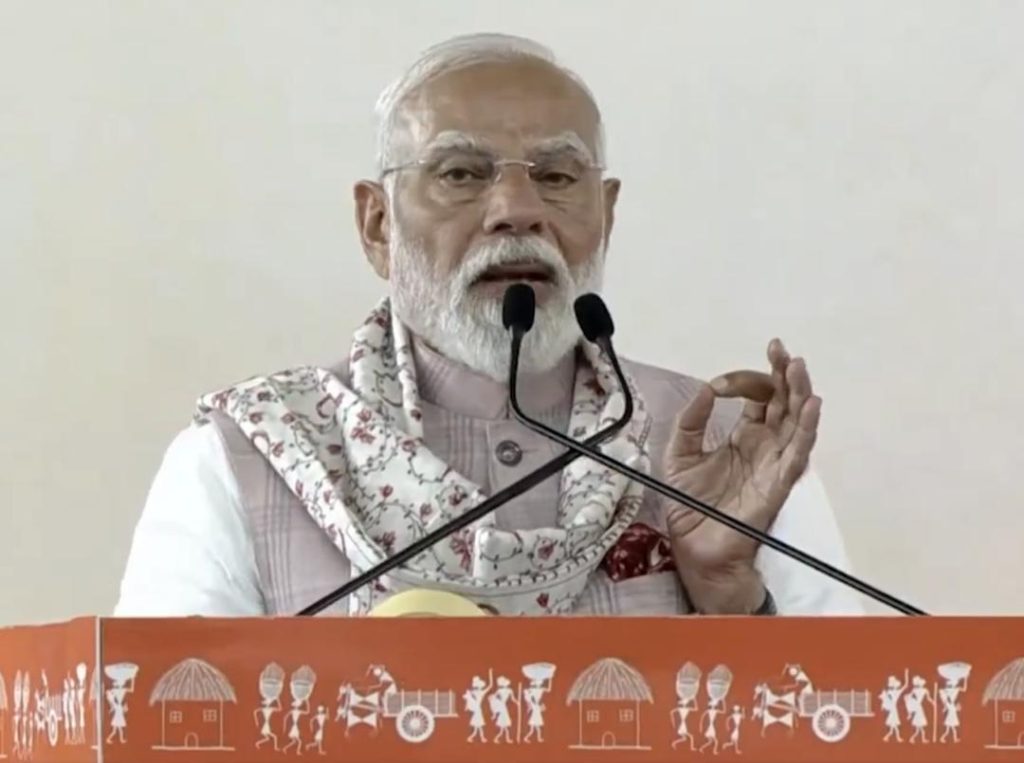
Women in Varanasi say I’ve built ‘izzat ghar’: PM on Women’s Day
On the occasion of International Women’s Day, Prime Minister Narendra Modi addressed a gathering of Lakhpati Didis (weavers’ wives) in Gujarat, highlighting the initiatives taken by his government to empower women. In his speech, he made a significant statement that has sparked a debate among the public, particularly in the context of women’s rights and access to basic facilities.
The Prime Minister said that the women in Kashi (Varanasi) don’t even use the word “toilet” and instead refer to the toilets built by his government as “izzat ghar” or a place of respect. This statement has been met with a mix of reactions, with some interpreting it as a positive gesture towards women’s dignity while others have criticized it for being condescending and lacking in sensitivity.
To understand the context behind the Prime Minister’s statement, it’s essential to look at the broader picture of women’s access to sanitation facilities in India. According to the World Bank, in 2018, only 49.2% of rural households in India had access to a private toilet, while the figure was much higher in urban areas at 89.3%. This stark disparity highlights the challenges faced by rural women, particularly in areas like Varanasi, where access to basic facilities is limited.
The Prime Minister’s government has made significant efforts to bridge this gap by building crores of toilets across the country. As part of the “Swachh Bharat Abhiyan” (Clean India Mission) launched in 2014, the government has aimed to construct individual household latrines (IHHLs) for all rural households by October 2019. While this initiative has made a significant impact, there are still challenges related to maintenance, accessibility, and social norms that need to be addressed.
The concept of “izzat ghar” is an interesting one, as it indicates a shift in the way women think about toilets in India. Traditionally, toilets have been seen as a taboo topic, with many women avoiding discussing them due to social stigma and shame. The use of the term “izzat ghar” suggests that the Prime Minister’s government has managed to rebrand toilets as a symbol of respect and dignity, rather than shame and embarrassment.
However, some critics have argued that this approach is condescending and lacks sensitivity towards the real issues faced by women. According to them, the focus should be on providing women with safe and accessible sanitation facilities, rather than simply rebranding existing infrastructure. They argue that the Prime Minister’s statement deflects attention from the larger issues of gender inequality and social norms that perpetuate discrimination against women.
It’s also important to note that the Prime Minister’s statement has been met with skepticism by many women’s rights activists, who have pointed out that the government’s initiatives often fail to address the root causes of gender inequality. While the construction of toilets is an important step towards improving women’s access to sanitation, it’s just one aspect of a broader struggle for women’s rights and empowerment.
In conclusion, the Prime Minister’s statement about women in Varanasi referring to toilets as “izzat ghar” highlights the complex issues surrounding women’s access to basic facilities in India. While the government’s initiatives have made a significant impact, there is still much work to be done to address the social and cultural norms that perpetuate discrimination against women. As we move forward, it’s essential to prioritize the needs and concerns of women, rather than simply rebranding existing infrastructure.
Source:






